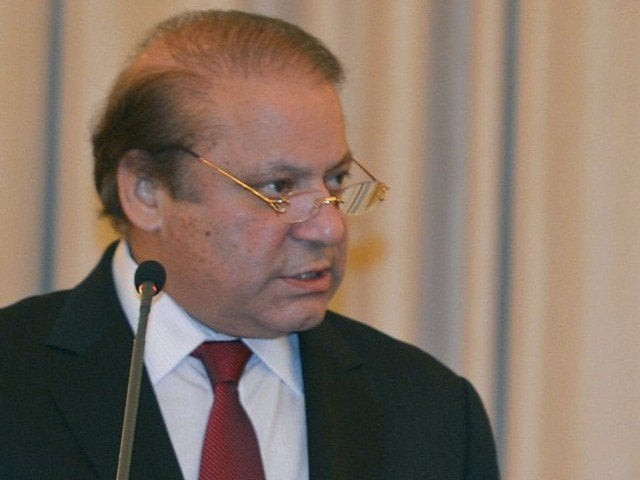With Nawaz's tenure cut short, Pakistan yet to have PM who'll complete term
PMs have been murdered, sentenced to death and forcibly removed in the country's 70-year plus history

Prime Minister Nawaz Sharif. PHOTO: REUTERS
As Nawaz Sharif, the only prime minister who could have completed the entire parliamentary tenure, was disqualified on July 28, 2017, we are compelled to look back on history and remember all his predecessors.
The Pakistan prime minister's slot is what the professor of Defense Against the Dark Arts is for Hogwarts – no one finishes their entire term.
How international media covered Nawaz Sharif's disqualification
Following the assassination of country’s first prime minister, Liaquat Ali Khan in 1951, Khawaja Nizamuddin became the premier. He was dismissed by Governor-General Malik Ghulam Muhammad.
The next to take up the office was Mohammad Ali Bogra, a Bengali politician, who was "forcibly removed" from office by Iskander Mirza.
Zulfikar Ali Bhutto, one of the most popular leaders of the country, was ousted in a military coup by General Ziaul Haq on July 5, 1977. He was hanged to death on charges of murder in 1979.
After the non-party based general elections in 1985, Muhammad Khan Junejo became the prime minister. He, too, was dismissed by Zia under Article 58(2) b of the Constitution.
Zia said Junejo was removed because the law and order situation had deteriorated to an alarming extent and the government could not be run in accordance with the Constitution.

Following Zia's death in 1988, Pakistan received its first female Prime Minister, Benazir Bhutto. She was dismissed two years later by President Ghulam Ishaq Khan over corruption, nepotism and other acts ''in contravention of the Constitution and the law.''
Her second government was again dismissed in 1996 by President Farooq Leghari over “corruption”. Leghari was a Pakistan Peoples Party leader.
Immediately after Bhutto; Nawaz, who served as the Punjab chief minister under the PPP government, gained majority. However, he was forced to resign in 1993 following pressure from the military establishment, as well as the presidency.
While his government in 1999 was dismissed by then army chief Gen Pervez Musharraf, he was disqualified from holding public office by the Supreme Court on Friday for failure to disclose his ‘un-withdrawn receivables, constituting assets’ in his nomination papers filed ahead of the 2013 general elections.
Yousaf Raza Gilani is another PM ousted and disqualified from holding public office in 2012 for contempt of court. The Supreme Court found Gilani guilty for refusing to reopen corruption cases against the president.


















COMMENTS
Comments are moderated and generally will be posted if they are on-topic and not abusive.
For more information, please see our Comments FAQ